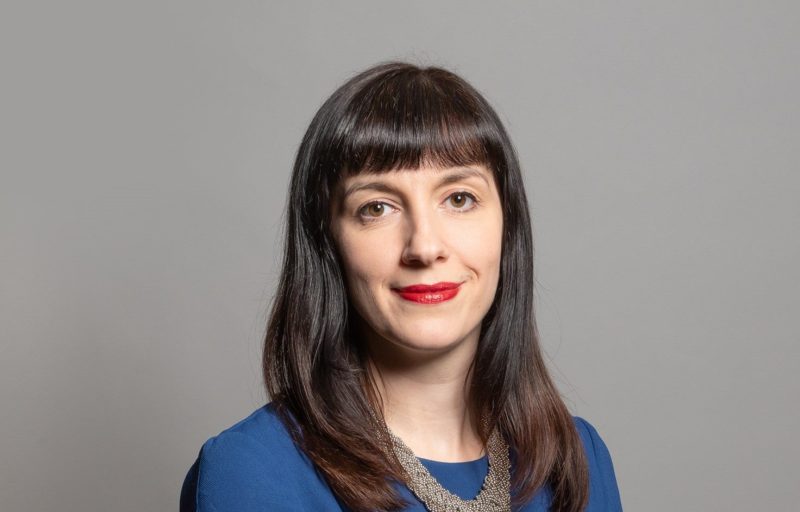Bridget Phillipson Labour Member of Parliament for Houghton and Sunderland South

Under a Labour government companies would be under ‘growing pressure’ to level the playing field, says shadow Education Secretary
Britain’s remaining grammar schools would not be shut down if Labour wins the next election, the shadow Education Secretary says.
Bridget Phillipson has promised to end a £1.7bn tax break for private schools she describes as “indefensible” but says the country’s 163 state-funded selective secondary schools are “not a priority”.
“I’m more interested in what goes on inside the classroom than the name above the door,” she says, when asked if Labour would seek to phase out grammars.
After a summer dominated by the Conservative leadership election, next week’s A-level results will see attention switch to education – specifically whether ministers did enough to help students cope during the pandemic.
The softly-spoken north-easterner, who is one of Labour’s rising stars, is scathing about the Government’s readiness to cope with any repeat of the chaos that has surrounded the past two years’ results.“
In all likelihood, James Cleverly is just an interim Education Secretary. I think that the succession of short-lived ministers is just the last thing children need going into exam season.”
The Government has told exam boards to be more generous when marking this year’s students than those examined before the pandemic but not as generous as the grades awarded mostly on teacher assessment.
Ms Phillipson says she supports the effort to get the grade boundaries back in line over time, but says the mitigations won’t address disparities between this year’s pupils, who were given very different levels of support to catch up on lost work.
“The difficulty that we have is it because the Government has failed to properly support young people’s recovery with an adequate children’s recovery plan. Lots of young people sitting exams this summer will not have received any additional support – whether that’s tutoring, or whatever else.”
More worrying still, she says, is the long-term scarring that the pandemic will have on the lives of millions which may not become fully apparent for at least a decade.
She points out that Rishi Sunak, when chancellor, blocked a £15bn Covid catch-up programme and said that the Government had “maxed out” its help pupils make up for lost education.
Liz Truss, meanwhile, seems to have forgotten that her own state schooling, whose failures she said prompted her to become a Conservative, took place under a Tory government, says Ms Phillipson.
As the next election approaches, however, Labour knows it has to start spelling out what it would do differently – and how it would pay for it. It claims the abolition of private schools’ charitable status would raise £1.7bn – mostly from VAT on fees currently exempt from the tax. From this pot the party says it would recruit 6,000 more teachers, ensure each school has a mental-health counsellor and significantly upgrade careers’ advice.
Ms Phillipson said: “As Secretary of State, my priority will be to make sure that all children in every state school get access to good careers guidance and work experience. Currently, all too often they are not made fully aware of what’s out there in terms of training opportunities, apprenticeships, university and that has to change.”
She would not go as far as saying that she would ban unpaid internships, one of the ways that children from wealthier backgrounds gain an advantage, but says that under a Labour government companies would be under “growing pressure” to level the playing field.
Ms Phillipson’s other priority is an overhaul of childcare – both for pre-school children and for primary pupils. She hints heavily that the party is preparing a big election offer to parents, particularly mothers, struggling to balance work and family.
Since Labour opposes relaxing rules that limit the number of children any one member of staff can supervise but also say it wants to increase the quality of the childcare available that offer won’t come cheap – and it won’t be funded out of the same pot as the new teachers.
Ms Phillipson won’t say how much the party will pledge to spend on the policy but says there are strong economic arguments for making it easier for parents to work and international examples of where it is already happening.
“New Zealand has been doing interesting work, particularly around using government intervention to improve standards. Childcare was additional support around childcare was a big element of the Australian Labour Party’s [recent election victory].”
“We already spend billions of pounds on a system that is complicated with different overlapping entitlements and a tax-free childcare system that sees billions of pounds every year go unclaimed.”
“Increasingly, we’re expecting women to give up work or reduce hours because childcare is unavailable or unaffordable. And that has an economic cost. It’s a cost for the woman, but it has a cost and the family but it has a cost to the economy.”
The original article can be found here.
